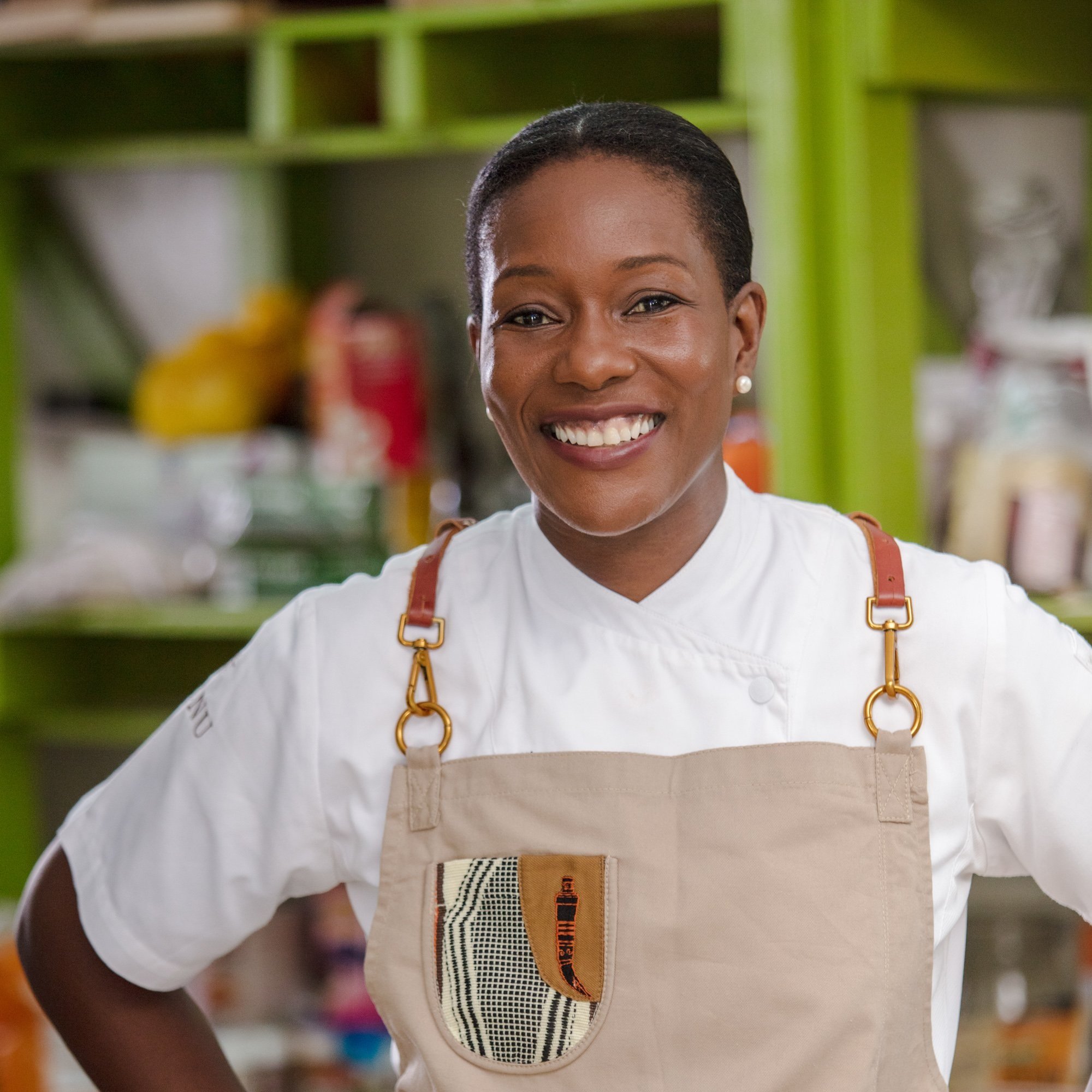Why I Became a Chef: A Journey Rooted in Food, Identity & Change
Selassie Atadika in the Midunu Kitchen, Tesano, Accra, Ghana
I had become every immigrant parent's nightmare.
Not only was I not a lawyer, doctor, or engineer…
I was going back home to become a COOK.
Chaiiiiiiii!
I could already hear the aunties:
"All that education… and she wants to stand behind a stove?"
"After all the degrees? Pre-med? The UN? And now she's cooking?!"
But to be fair, I tried.
I started on the pre-med track—until organic chemistry made it clear that medicine and I were not meant to be. Strike 1. 🚨
I pivoted to Geography & Environmental Studies, thinking that at least this was a respectable, world-changing field.
And then I had a brilliant idea.
I’d follow in the footsteps of Kofi Annan and join the United Nations. 🌍
That’s where I could make a difference. That’s where I’d contribute to real, meaningful change.
And I did.
I spent years working in child protection and humanitarian preparedness and response, traveling across Africa and seeing communities at their most vulnerable.
I saw resilience.
I saw deep-rooted knowledge and traditions.
I saw food go beyond sustenance—it was survival, identity, community.
But I also saw something else.
I saw ingredients disappearing, replaced by imported foods with no cultural connection.
I saw people being told their own food wasn’t “good” enough—that aspiration meant abandoning tradition.
I saw farmers growing what the global market demanded, instead of what their communities needed.
And then I came home.
I walked through the markets in Ghana and saw fewer of the ingredients my grandmother used.
I sat at tables where local flavors were fading, replaced by what was considered “modern” or “aspirational.”
I realized that, even in my own country, our food was treated as secondary.
Why?
💭 Why were our ingredients only valuable once the West “discovered” them?
💭 Why were our dishes called “ethnic” or “exotic” instead of simply food?
💭 Why were we losing connection to the very flavors that defined who we are?
At that moment, I knew my work with food was about a movement.
What is New African Cuisine?
New African Cuisine isn’t about nostalgia.
It’s not about preserving food in a museum.
It’s about making sure we are still eating OUR food in 2050.
New African Cuisine is where culture, community, and cuisine intersect with sustainability, environment, and economy.
It’s about:
✔ Centering indigenous ingredients—so they don’t disappear from our plates.
✔ Reclaiming food narratives—so we don’t need permission to define our own cuisines.
✔ Balancing aspiration with preservation—because moving forward shouldn’t mean erasing the past.
✔ Building food systems that are sustainable for both people and the planet.
This Is Why I Cook
I didn’t just walk into the kitchen to cook.
I walked in to preserve, innovate, and advocate.
Every dish I create reflects this mission:
🔥 Culture: Cooking with memory, honoring our ancestors.
🌱 Sustainability: Choosing ingredients that nourish both people and the planet.
🛠 Innovation: Finding new ways to elevate and showcase our food traditions.
💡 Economic Impact: Creating income opportunities for smallholder farmers and food producers.
This is why I became a chef.
This is why I champion New African Cuisine.
This is why I won’t stop.
What’s one food tradition from your culture that deserves more attention? Let’s Talk!
➡ For more on food systems change and New African Cuisine, explore.
